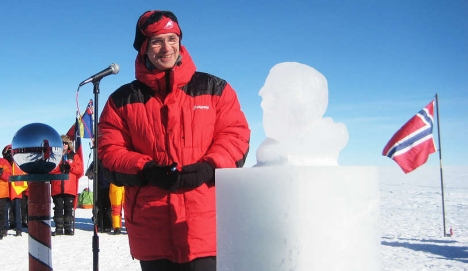"The military solution in Syria is leading to the dissolution of Syria," the UN chief said in Geneva, asking: "What atrocity must occur to finally stir the world to act?"
With the brutal, sectarian-tinged conflict between the regime of Syrian President Bashar al-Assad and rebels poised to enter its third year, Ban called for a renewed drive to halt the strife.
Syria has been embroiled in conflict since Assad's regime launched a brutal crackdown on protests that erupted in March 2011.
The United Nations says about 70,000 people have been killed, and with at least 5,000 Syrians a day fleeing this conflict-ravaged homeland, the total number of refugees is expected to top 1.1 million soon.
"For two years now, we have seen suppression of people's aspiration for change, the flight of ever-greater numbers of people from their homes, and the daily escalation of killing, war crimes and crimes against humanity," Ban said.
"The United Nations and our humanitarian partners are doing all we can to provide assistance. But in Syria and anywhere else, we must never use humanitarianism to avoid the tougher choices," he insisted.
Ban said it was down to all sides in Syria to come to the negotiating table, but urged the international community not to lose focus on the conflict there.
"We cannot change the channel and wish it away," he said.
"Those with the political power to change things must answer to every mother and every child in Syria. Inaction in the councils of peace looks like indifference in the cauldron of war," he added.
The UN Security Council's members have been at loggerheads over how to end Syria's civil war, with Assad's longstanding ally Russia, plus China, pitted against the United States, France and Britain, who are seeking a tough stance.
"The Security Council must no longer stand as a silent witness to the slaughter. At long last, it must come together and establish the parameters for the democratic transition that might be the last best hope for Syria," the UN chief said.
UN-mandated human rights investigators have also warned of increased radicalisation and sectarianism — driven by foreign fighters, honed in conflict zones such as Libya or Afghanistan — in the bloody civil war in the nation of 21 million.
Ban made his remarks honouring a bishop from South Sudan, who won a UN peace prize in recognition of his efforts to build trust among warring communities in his conflict-torn region.
The Sergio Vieira de Mello Prize is named after the UN's former human rights chief who was killed in a bombing in Iraq in 2003.
At a press conference shortly before the award ceremony, Ban said he was due to meet the international community's mediator for Syria, Lakhdar Brahimi, during closed-door talks in Switzerland Saturday with 30 UN envoys deployed in the world's crisis zones.
"I'm very concerned about the sectarian violence and spillover effects in neighbouring countries," he told reporters, adding that there was a "very small window of opportunity" for peace.
"That window of opportunity may soon close," he warned.


 Please whitelist us to continue reading.
Please whitelist us to continue reading.
Member comments